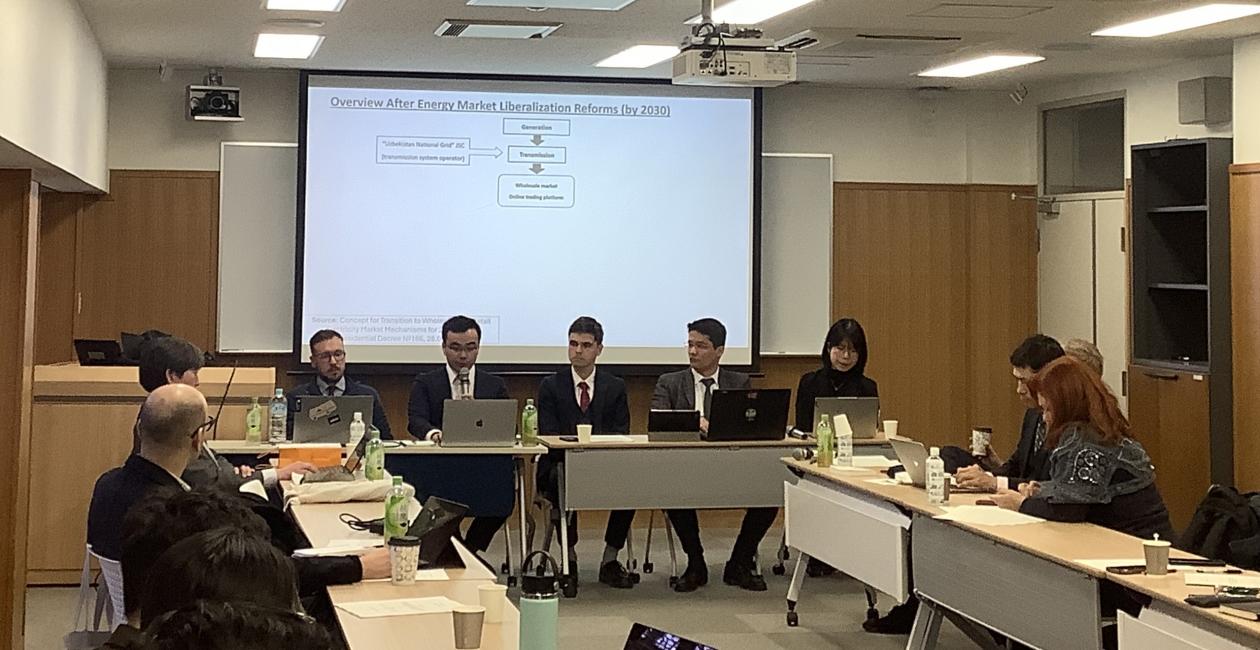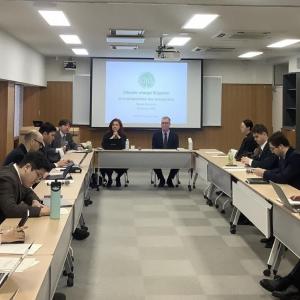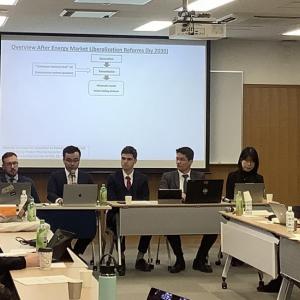



On February 19, Nagoya University Graduate School of Law hosted the conference “Climate Change and Clean Energy: Challenges and Solutions.”
After the welcome and opening remarks by Prof. Dai Yokomizo (Nagoya University), the conference began with a keynote speech by Prof. Barbara Pozzo (University of Insubria, President of the Italian Society for Comparative Law Research) on “Climate Change Litigation in a Comparative Law Perspective”. Her insights provided a broad analysis of climate-related disputes across different legal systems, including US and European countries.
The morning continued with an individual session, in which Ph.D. candidates and graduates presented their research on diverse topics: Dr. Mana Takahashi (Kanda University of International Studies) examined human rights and future development in Small Island Developing States, focusing on Niue; Masako Nagoshi (Kyoto University) discussed the extraterritorial application and enforcement of the U.S. Foreign Corrupt Practices Act (FCPA) and its impact on international relations; Selim Becirbegovic (Nagoya University) explored stability mechanisms of dominant parties in both democratic and competitive authoritarian regimes.
In the afternoon, graduate students of Nagoya University presented the results of their joint research on “Accelerating Uzbekistan’s Transition to Clean Energy: Policy, Progress, and Proposals”. A team of researchers, including Davronbek Ubaydullaev, Selim Becirbegovic, Khasanboy Rakhimberganov, Tran Thi Thu Hang, and Dmytro Izotov, presented their findings on policies, progress, and proposals for accelerating the country’s clean energy initiatives.
The final keynote speech was delivered by Dr. In Hwan Ko (University of Nevada, Reno) on “A ‘Glocal’ Butterfly Effect? Sources of Local Renewable Energy Opposition and Its Impacts on National Climate Change Policy,” offering a thought-provoking discussion on the local-global dynamics of energy transitions.
The event concluded with closing remarks by Prof. David Green (Nagoya University).
The conference, supported by the Shinnippon-Hoki Foundation, reaffirmed Nagoya University’s commitment to interdisciplinary research on climate change and energy law, fostering meaningful discussions among legal scholars, policymakers, and researchers.